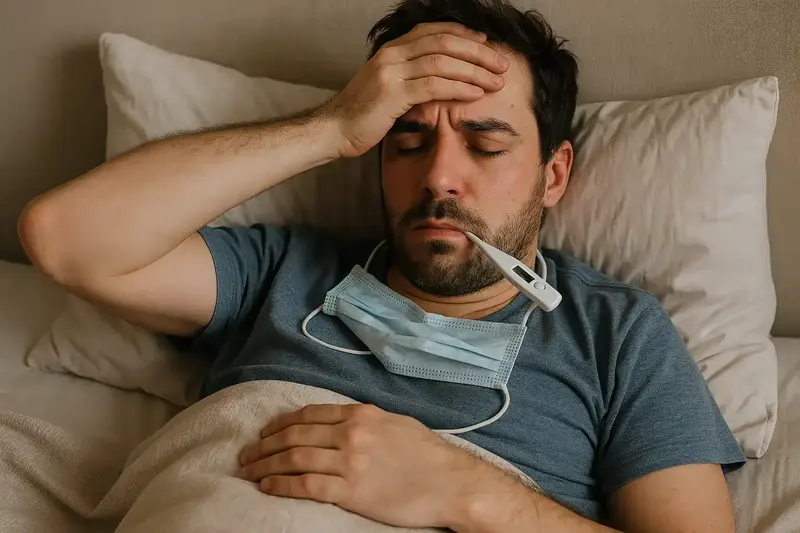- Published on: Apr 24, 2024
- 2 minute read
- By: SecondMedic Expert
10 Effective Natural Ways To Lower Your Blood Pressure
High blood pressure, also known as hypertension, is a common health issue affecting millions worldwide. While medications are often prescribed, natural remedies can also play a significant role in managing blood pressure. In this article, we'll explore ten effective and natural ways to lower blood pressure without relying solely on medication.
Embrace a Balanced Diet:
A diet rich in fruits, vegetables, whole grains, and lean proteins can contribute to lower blood pressure. Focus on reducing sodium intake and incorporating potassium-rich foods like bananas, spinach, and sweet potatoes. Additionally, limit processed foods and opt for healthy fats found in nuts, seeds, and avocados.
Maintain a Healthy Weight:
Being overweight or obese can increase the risk of hypertension. By adopting a balanced diet and engaging in regular physical activity, you can achieve and maintain a healthy weight, which in turn can help lower your blood pressure.
Stay Active:
Regular exercise is crucial for overall health, including blood pressure management. Aim for at least 30 minutes of moderate-intensity exercise most days of the week. Activities like brisk walking, swimming, cycling, and dancing can all contribute to a healthier heart and lower blood pressure.
Reduce Stress:
Chronic stress can elevate blood pressure levels over time. Incorporating stress-reducing techniques such as deep breathing exercises, meditation, yoga, or spending time in nature can help lower stress levels and promote relaxation.
Limit Alcohol Consumption:
While moderate alcohol consumption may have some cardiovascular benefits, excessive drinking can raise blood pressure. Limit your alcohol intake to moderate levels, which is generally defined as up to one drink per day for women and up to two drinks per day for men.
Quit Smoking:
Smoking not only damages your lungs but also contributes to high blood pressure and heart disease. If you smoke, quitting is one of the best things you can do for your cardiovascular health. Seek support from friends, family, or healthcare professionals to help you quit successfully.
Get Adequate Sleep:
Poor sleep patterns and sleep disorders have been linked to hypertension. Aim for 7-9 hours of quality sleep each night to support overall health and lower blood pressure. Establish a relaxing bedtime routine and create a comfortable sleep environment to improve sleep quality.
Monitor Your Blood Pressure Regularly:
Keeping track of your blood pressure levels at home can help you understand how your lifestyle changes and treatments are affecting your condition. Invest in a reliable blood pressure monitor and follow your healthcare provider's recommendations for monitoring and recording your readings.
Increase Magnesium Intake:
Magnesium plays a crucial role in regulating blood pressure and muscle function. Incorporate magnesium-rich foods such as leafy greens, nuts, seeds, and whole grains into your diet. Alternatively, consider taking a magnesium supplement under the guidance of a healthcare professional.
Stay Hydrated:
Proper hydration is essential for maintaining healthy blood pressure levels. Aim to drink plenty of water throughout the day, as dehydration can cause blood pressure to rise. Limit your intake of sugary beverages and opt for water, herbal teas, or infused water instead.
Conclusion:
High blood pressure is a significant risk factor for cardiovascular disease, but it can often be managed through lifestyle modifications and natural remedies. By embracing a healthy diet, regular exercise, stress reduction techniques, and other natural approaches, you can take control of your blood pressure and improve your overall health and well-being. Remember to consult with your healthcare provider before making any significant changes to your lifestyle or starting any new supplements or treatments.
Read FAQs
A. Deep breathing, relaxation techniques, and staying hydrated can quickly reduce blood pressure. Avoiding caffeine and alcohol temporarily can also help.
A. Sit quietly and take slow, deep breaths. Relaxation techniques like meditation or gentle exercise can also help lower blood pressure in the short term.
A. Lower blood pressure naturally by adopting a balanced diet rich in fruits, vegetables, and lean proteins. Regular exercise, stress reduction, and limiting sodium intake are also key factors.









